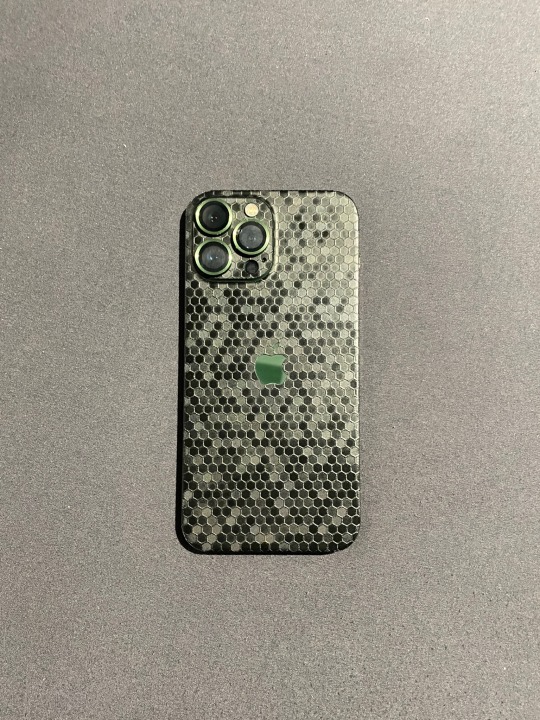#ios 13 iphone
Explore tagged Tumblr posts
Text
The 10 minute chrono-scroll challenge
Change your following feed to full chrono
Set a timer for 10 minutes
Scroll your following feed like you normally would.
When the timer goes off, how far in the past were you?
First run for me: 1 hour in the past
For ref I follow almost 700 746 blogs.
7 notes
·
View notes
Text
El Monopolio de las Tiendas de Aplicaciones Móviles: Una Trampa para Desarrolladores
🧑💻 Programadores atrapados: trabajar mucho, cobrar poco Los desarrolladores móviles construyen la base digital de la era moderna. Sin embargo, tras largas jornadas de diseño, codificación, testeo y publicación, la recompensa es muchas veces decepcionante: las plataformas dominantes (Apple y Google) se quedan con hasta un 30 % de los ingresos generados. Esto no es inversión, es intermediación…
#abuso de plataformas#alternativa App Store#alternativa Google Play#Apple App Store#Apple vs Google#apps multiplataforma#comisión de aplicaciones#comisiones abusivas#comisiones Apple#comisiones Google#control de las plataformas#costos de publicación apps#derechos de los desarrolladores#desarrolladores móviles#distribución de apps#distribución digital apps#distribución justa#duopolio Apple Google#duopolio tecnológico#economía de aplicaciones#ecosistema cerrado#Elon Musk#fragmentación Android iOS#futuro de las apps#Google Play Store#guerra comercial Apple Google#injusticia programadores#iphone 13#libertad de publicación#mercado de apps móviles
0 notes
Text
🚨 APPLE JUST UPGRADED THE IPHONE 13—FOR FREE. 🚨
Big news for iPhone 13 users: Apple’s iOS 18.5 update is bringing satellite connectivity—and you don’t need new hardware! 📡
🔹 How? Through carrier support (T-Mobile + Starlink are leading in the U.S.). 🔹 Why? So you can text, SOS, and maybe even get data in the middle of nowhere. 🔹 When? Soon. Apple confirmed it in their May 6 release notes.
This is huge for travelers, adventurers, and anyone who’s ever lost signal at the worst time.
0 notes
Text
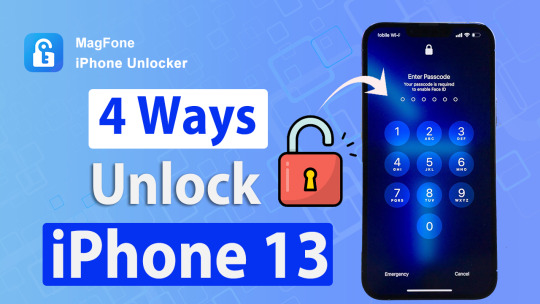
4 Ways to Unlock iPhone 13 without Passcode
🔗Use Magfone iPhone Unlocker to unlock iPhone 13: https://cutt.ly/nefWpmro
How to unlock iPhone 13 without passcode or Face ID? Whether you've forgotten your passcode, or bought a locked phone, in today’s video, we’re going to walk through all the steps to unlock your iPhone 13 quickly and safely. https://www.youtube.com/watch?v=ddKgXI3QWT8
0 notes
Text
The iPhones Likely to Receive the iOS 19 Update: What You Need to Know
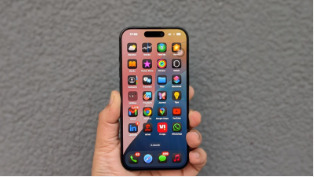
As Apple continues to roll out new features and improvements with each update, iPhone users eagerly await the next major software release. With the announcement of iOS 19 on the horizon, many are wondering which iPhone models will be eligible for the update. While Apple has yet to officially confirm the full list, we’ve compiled a list of iPhones that are almost guaranteed to be included in the iOS 19 rollout based on Apple’s historical update patterns and hardware capabilities.
Apple typically supports its devices for several years, ensuring that users with relatively older models can still enjoy the latest software features. The iOS 19 update will likely continue this trend, with a few older models possibly being left behind as Apple focuses on more recent devices that can support the latest technologies.
Here’s a Look at the iPhones Most Likely to Receive iOS 19:
iPhone 15 Series: As the latest generation, the iPhone 15, 15 Plus, 15 Pro, and 15 Pro Max will undoubtedly be among the first to receive iOS 19. These models are equipped with the most advanced hardware, making them perfect candidates for future software updates.
iPhone 14 Series: Released just a year before iPhone 15, the iPhone 14, 14 Plus, 14 Pro, and 14 Pro Max are expected to be supported for at least a few more years, offering users an excellent upgrade path for those seeking the latest software features.
iPhone 13 Series: The iPhone 13 mini, 13, 13 Pro, and 13 Pro Max are still relatively young devices and will likely receive the iOS 19 update. With Apple’s history of supporting devices for at least five years, the iPhone 13 series is safe for now.
iPhone 12 Series: The iPhone 12, 12 mini, 12 Pro, and 12 Pro Max will likely also be eligible for iOS 19. While slightly older, these models still have powerful A14 Bionic chips, which should allow them to run the latest updates smoothly.
iPhone SE (3rd Generation): The iPhone SE (2022) remains one of the most affordable options in Apple’s lineup, and with the A15 Bionic chip powering it, it will almost certainly receive the iOS 19 update.
iPhone 11 Series: The iPhone 11, 11 Pro, and 11 Pro Max, though a few generations old, still feature capable A13 Bionic processors, which puts them in a strong position to receive iOS 19. However, this may be one of the last updates they receive.
iPhone XS Series: The iPhone XS and XS Max, released in 2018, could be on the edge of eligibility. While they still offer decent performance, their A12 Bionic chips may be nearing the cutoff for future updates. It’s possible that the iPhone XS series might not be included in iOS 19, but nothing is confirmed yet.
Which iPhones Are Likely to Miss Out?
Although Apple is known for offering long-term support for its devices, the oldest models on the market will likely be excluded from the iOS 19 update. This could include:
iPhone XR
iPhone 8 and 8 Plus
iPhone X
These models feature older processors, which may struggle to support the new features and enhancements of iOS 19.
Final Thoughts:
While the official list of iPhones eligible for iOS 19 will be confirmed by Apple closer to the update's release, it’s safe to say that devices from the iPhone 11 series onward will likely make the cut. If you own a more recent iPhone, you can rest assured that iOS 19 will bring exciting new features to your device, from enhanced privacy settings to performance optimizations and more. Keep an eye out for Apple's announcements as we get closer to the official launch of iOS 19!
#iOS 19 Update#iPhone Update#iPhone Compatibility#iPhone 15 Series#iPhone 14 Series#iPhone 13 Series#iPhone SE 3rd Gen#iPhone XS Series
0 notes
Text
youtube
iPhone 12 vs iPhone 13 DIFERENCIAS 2024 - 2025 iOS 18 🔥
#apple#iphone#ios#youtube#appleiphone#apple ios#apple iphone#ruben tech#iphone 12 blue#iphone 12#iphone 12 mini#iphone 13 for free#iphone 13#iphone 13 mini#Youtube
0 notes
Text
iPhone 13 (128 GB): Specifiche e Caratteristiche
L’iPhone 13 (128 GB) è uno degli smartphone iOS più avanzati e completi sul mercato. Dotato di un potente chip A15 Bionic, una fotocamera avanzata con doppia fotocamera da 12MP, registrazione video in 4K e connettività 5G ultraveloce, l’iPhone 13 offre un’esperienza iOS 15 al top. Il dispositivo è disponibile in diverse colorazioni accattivanti, tra cui (PRODUCT)RED, galassia, mezzanotte, blu,…
#Apple iOS 15#Design iPhone 13#Display OLED iPhone 13#Fotocamera iPhone 13#iPhone 13 128 GB#iPhone 13 caratteristiche#iPhone 13 specifiche#Prestazioni iPhone 13#Tecnologia 5G iPhone 13
0 notes
Text
a quick tutorial on how to create fun and new stickers straight from your camera roll
#ios 17#stickers#camera roll#digital stickers#iphone 13#iphone tips and tricks#iphone tips#iphone hacks#ios 16#ios 16 features#ios 17 features
0 notes
Text
iPhone Unavailable Lock Screen Problem SOLVED
youtube
#apple iphone#iphone#iphone se#iphone 8#iphone 11#iphone 13#iphone 12#iphone 14#iphone 15#ios#iphone unavailable#lock screen#forgotten password#passcode#youtube#youtube video
0 notes
Text
How to Block No Caller ID Calls on iPhone
When your phone rings and the Caller ID is blocked, or it’s an unknown caller, it’s pretty frustrating. Especially with repeat unknown calls. If you are ready to stop those annoying spam calls and unmask the Caller ID behind them, these are some of the be
RAYMOND OGLESBY @RaymondOglesby2October 17, 2023 This is for the iPhone with iOS 13 +. Screenshots are from iPhone 14 Pro running iOS 16+ When your phone rings and the Caller ID is blocked, or it’s an unknown caller, it’s pretty frustrating. Especially with repeat unknown calls. If you are ready to stop those annoying spam calls and unmask the Caller ID behind them, these are some of the best…

View On WordPress
0 notes
Text
Link tải iOS 17.0.2 cho iPhone, iPad
Apple vừa cập nhật iOS 17 lên 17.0.2 đây là bản iOS mới nhất dành cho iPhone và iPad. Phiên bản này tập trung cải thiện lỗi truyền dữ liệu iPhone và một số lỗi khác. Để cập nhật các bạn có thể vào Settings > General > Software Update hoặc sử dụng link bên dưới để cài mới. Link tải iOS 17.0.2 IPSW iPhone 14 Pro Max, iPhone 14 Pro iPhone 14, iPhone 14 Plus iPhone 13 Pro Max, iPhone 13…
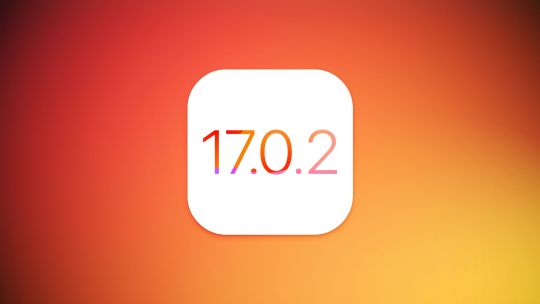
View On WordPress
#bảo mật iOS#Cách tải iOS mới nhất#iPad Air#iPhone 12 Mini#iPhone 12 Pro Max#iPhone 13 Pro#iPhone 14 Plus#iPhone 14 Pro#iPhone 15#iPhone 15 Plus#iPhone 15 Pro Max#nâng cấp iOS mới nhất#tải iOS mới nhất
0 notes
Text
Your car spies on you and rats you out to insurance companies
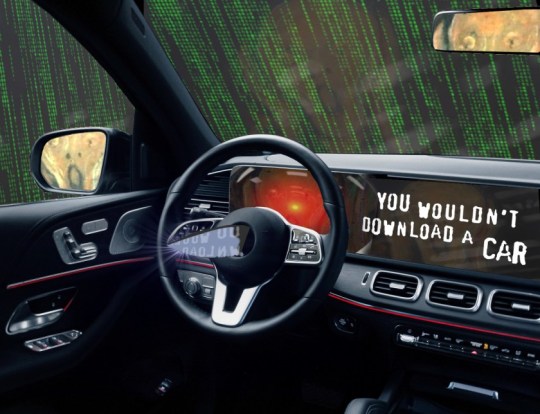
I'm on tour with my new, nationally bestselling novel The Bezzle! Catch me TOMORROW (Mar 13) in SAN FRANCISCO with ROBIN SLOAN, then Toronto, NYC, Anaheim, and more!

Another characteristically brilliant Kashmir Hill story for The New York Times reveals another characteristically terrible fact about modern life: your car secretly records fine-grained telemetry about your driving and sells it to data-brokers, who sell it to insurers, who use it as a pretext to gouge you on premiums:
https://www.nytimes.com/2024/03/11/technology/carmakers-driver-tracking-insurance.html
Almost every car manufacturer does this: Hyundai, Nissan, Ford, Chrysler, etc etc:
https://www.repairerdrivennews.com/2020/09/09/ford-state-farm-ford-metromile-honda-verisk-among-insurer-oem-telematics-connections/
This is true whether you own or lease the car, and it's separate from the "black box" your insurer might have offered to you in exchange for a discount on your premiums. In other words, even if you say no to the insurer's carrot – a surveillance-based discount – they've got a stick in reserve: buying your nonconsensually harvested data on the open market.
I've always hated that saying, "If you're not paying for the product, you're the product," the reason being that it posits decent treatment as a customer reward program, like the little ramekin warm nuts first class passengers get before takeoff. Companies don't treat you well when you pay them. Companies treat you well when they fear the consequences of treating you badly.
Take Apple. The company offers Ios users a one-tap opt-out from commercial surveillance, and more than 96% of users opted out. Presumably, the other 4% were either confused or on Facebook's payroll. Apple – and its army of cultists – insist that this proves that our world's woes can be traced to cheapskate "consumers" who expected to get something for nothing by using advertising-supported products.
But here's the kicker: right after Apple blocked all its rivals from spying on its customers, it began secretly spying on those customers! Apple has a rival surveillance ad network, and even if you opt out of commercial surveillance on your Iphone, Apple still secretly spies on you and uses the data to target you for ads:
https://pluralistic.net/2022/11/14/luxury-surveillance/#liar-liar
Even if you're paying for the product, you're still the product – provided the company can get away with treating you as the product. Apple can absolutely get away with treating you as the product, because it lacks the historical constraints that prevented Apple – and other companies – from treating you as the product.
As I described in my McLuhan lecture on enshittification, tech firms can be constrained by four forces:
I. Competition
II. Regulation
III. Self-help
IV. Labor
https://pluralistic.net/2024/01/30/go-nuts-meine-kerle/#ich-bin-ein-bratapfel
When companies have real competitors – when a sector is composed of dozens or hundreds of roughly evenly matched firms – they have to worry that a maltreated customer might move to a rival. 40 years of antitrust neglect means that corporations were able to buy their way to dominance with predatory mergers and pricing, producing today's inbred, Habsburg capitalism. Apple and Google are a mobile duopoly, Google is a search monopoly, etc. It's not just tech! Every sector looks like this:
https://www.openmarketsinstitute.org/learn/monopoly-by-the-numbers
Eliminating competition doesn't just deprive customers of alternatives, it also empowers corporations. Liberated from "wasteful competition," companies in concentrated industries can extract massive profits. Think of how both Apple and Google have "competitively" arrived at the same 30% app tax on app sales and transactions, a rate that's more than 1,000% higher than the transaction fees extracted by the (bloated, price-gouging) credit-card sector:
https://pluralistic.net/2023/06/07/curatorial-vig/#app-tax
But cartels' power goes beyond the size of their warchest. The real source of a cartel's power is the ease with which a small number of companies can arrive at – and stick to – a common lobbying position. That's where "regulatory capture" comes in: the mobile duopoly has an easier time of capturing its regulators because two companies have an easy time agreeing on how to spend their app-tax billions:
https://pluralistic.net/2022/06/05/regulatory-capture/
Apple – and Google, and Facebook, and your car company – can violate your privacy because they aren't constrained regulation, just as Uber can violate its drivers' labor rights and Amazon can violate your consumer rights. The tech cartels have captured their regulators and convinced them that the law doesn't apply if it's being broken via an app:
https://pluralistic.net/2023/04/18/cursed-are-the-sausagemakers/#how-the-parties-get-to-yes
In other words, Apple can spy on you because it's allowed to spy on you. America's last consumer privacy law was passed in 1988, and it bans video-store clerks from leaking your VHS rental history. Congress has taken no action on consumer privacy since the Reagan years:
https://www.eff.org/tags/video-privacy-protection-act
But tech has some special enshittification-resistant characteristics. The most important of these is interoperability: the fact that computers are universal digital machines that can run any program. HP can design a printer that rejects third-party ink and charge $10,000/gallon for its own colored water, but someone else can write a program that lets you jailbreak your printer so that it accepts any ink cartridge:
https://www.eff.org/deeplinks/2020/11/ink-stained-wretches-battle-soul-digital-freedom-taking-place-inside-your-printer
Tech companies that contemplated enshittifying their products always had to watch over their shoulders for a rival that might offer a disenshittification tool and use that as a wedge between the company and its customers. If you make your website's ads 20% more obnoxious in anticipation of a 2% increase in gross margins, you have to consider the possibility that 40% of your users will google "how do I block ads?" Because the revenue from a user who blocks ads doesn't stay at 100% of the current levels – it drops to zero, forever (no user ever googles "how do I stop blocking ads?").
The majority of web users are running an ad-blocker:
https://doc.searls.com/2023/11/11/how-is-the-worlds-biggest-boycott-doing/
Web operators made them an offer ("free website in exchange for unlimited surveillance and unfettered intrusions") and they made a counteroffer ("how about 'nah'?"):
https://www.eff.org/deeplinks/2019/07/adblocking-how-about-nah
Here's the thing: reverse-engineering an app – or any other IP-encumbered technology – is a legal minefield. Just decompiling an app exposes you to felony prosecution: a five year sentence and a $500k fine for violating Section 1201 of the DMCA. But it's not just the DMCA – modern products are surrounded with high-tech tripwires that allow companies to invoke IP law to prevent competitors from augmenting, recongifuring or adapting their products. When a business says it has "IP," it means that it has arranged its legal affairs to allow it to invoke the power of the state to control its customers, critics and competitors:
https://locusmag.com/2020/09/cory-doctorow-ip/
An "app" is just a web-page skinned in enough IP to make it a crime to add an ad-blocker to it. This is what Jay Freeman calls "felony contempt of business model" and it's everywhere. When companies don't have to worry about users deploying self-help measures to disenshittify their products, they are freed from the constraint that prevents them indulging the impulse to shift value from their customers to themselves.
Apple owes its existence to interoperability – its ability to clone Microsoft Office's file formats for Pages, Numbers and Keynote, which saved the company in the early 2000s – and ever since, it has devoted its existence to making sure no one ever does to Apple what Apple did to Microsoft:
https://www.eff.org/deeplinks/2019/06/adversarial-interoperability-reviving-elegant-weapon-more-civilized-age-slay
Regulatory capture cuts both ways: it's not just about powerful corporations being free to flout the law, it's also about their ability to enlist the law to punish competitors that might constrain their plans for exploiting their workers, customers, suppliers or other stakeholders.
The final historical constraint on tech companies was their own workers. Tech has very low union-density, but that's in part because individual tech workers enjoyed so much bargaining power due to their scarcity. This is why their bosses pampered them with whimsical campuses filled with gourmet cafeterias, fancy gyms and free massages: it allowed tech companies to convince tech workers to work like government mules by flattering them that they were partners on a mission to bring the world to its digital future:
https://pluralistic.net/2023/09/10/the-proletarianization-of-tech-workers/
For tech bosses, this gambit worked well, but failed badly. On the one hand, they were able to get otherwise powerful workers to consent to being "extremely hardcore" by invoking Fobazi Ettarh's spirit of "vocational awe":
https://www.inthelibrarywiththeleadpipe.org/2018/vocational-awe/
On the other hand, when you motivate your workers by appealing to their sense of mission, the downside is that they feel a sense of mission. That means that when you demand that a tech worker enshittifies something they missed their mother's funeral to deliver, they will experience a profound sense of moral injury and refuse, and that worker's bargaining power means that they can make it stick.
Or at least, it did. In this era of mass tech layoffs, when Google can fire 12,000 workers after a $80b stock buyback that would have paid their wages for the next 27 years, tech workers are learning that the answer to "I won't do this and you can't make me" is "don't let the door hit you in the ass on the way out" (AKA "sharpen your blades boys"):
https://techcrunch.com/2022/09/29/elon-musk-texts-discovery-twitter/
With competition, regulation, self-help and labor cleared away, tech firms – and firms that have wrapped their products around the pluripotently malleable core of digital tech, including automotive makers – are no longer constrained from enshittifying their products.
And that's why your car manufacturer has chosen to spy on you and sell your private information to data-brokers and anyone else who wants it. Not because you didn't pay for the product, so you're the product. It's because they can get away with it.
Cars are enshittified. The dozens of chips that auto makers have shoveled into their car design are only incidentally related to delivering a better product. The primary use for those chips is autoenshittification – access to legal strictures ("IP") that allows them to block modifications and repairs that would interfere with the unfettered abuse of their own customers:
https://pluralistic.net/2023/07/24/rent-to-pwn/#kitt-is-a-demon
The fact that it's a felony to reverse-engineer and modify a car's software opens the floodgates to all kinds of shitty scams. Remember when Bay Staters were voting on a ballot measure to impose right-to-repair obligations on automakers in Massachusetts? The only reason they needed to have the law intervene to make right-to-repair viable is that Big Car has figured out that if it encrypts its diagnostic messages, it can felonize third-party diagnosis of a car, because decrypting the messages violates the DMCA:
https://www.eff.org/deeplinks/2013/11/drm-cars-will-drive-consumers-crazy
Big Car figured out that VIN locking – DRM for engine components and subassemblies – can felonize the production and the installation of third-party spare parts:
https://pluralistic.net/2022/05/08/about-those-kill-switched-ukrainian-tractors/
The fact that you can't legally modify your car means that automakers can go back to their pre-2008 ways, when they transformed themselves into unregulated banks that incidentally manufactured the cars they sold subprime loans for. Subprime auto loans – over $1t worth! – absolutely relies on the fact that borrowers' cars can be remotely controlled by lenders. Miss a payment and your car's stereo turns itself on and blares threatening messages at top volume, which you can't turn off. Break the lease agreement that says you won't drive your car over the county line and it will immobilize itself. Try to change any of this software and you'll commit a felony under Section 1201 of the DMCA:
https://pluralistic.net/2021/04/02/innovation-unlocks-markets/#digital-arm-breakers
Tesla, naturally, has the most advanced anti-features. Long before BMW tried to rent you your seat-heater and Mercedes tried to sell you a monthly subscription to your accelerator pedal, Teslas were demon-haunted nightmare cars. Miss a Tesla payment and the car will immobilize itself and lock you out until the repo man arrives, then it will blare its horn and back itself out of its parking spot. If you "buy" the right to fully charge your car's battery or use the features it came with, you don't own them – they're repossessed when your car changes hands, meaning you get less money on the used market because your car's next owner has to buy these features all over again:
https://pluralistic.net/2023/07/28/edison-not-tesla/#demon-haunted-world
And all this DRM allows your car maker to install spyware that you're not allowed to remove. They really tipped their hand on this when the R2R ballot measure was steaming towards an 80% victory, with wall-to-wall scare ads that revealed that your car collects so much information about you that allowing third parties to access it could lead to your murder (no, really!):
https://pluralistic.net/2020/09/03/rip-david-graeber/#rolling-surveillance-platforms
That's why your car spies on you. Because it can. Because the company that made it lacks constraint, be it market-based, legal, technological or its own workforce's ethics.
One common critique of my enshittification hypothesis is that this is "kind of sensible and normal" because "there’s something off in the consumer mindset that we’ve come to believe that the internet should provide us with amazing products, which bring us joy and happiness and we spend hours of the day on, and should ask nothing back in return":
https://freakonomics.com/podcast/how-to-have-great-conversations/
What this criticism misses is that this isn't the companies bargaining to shift some value from us to them. Enshittification happens when a company can seize all that value, without having to bargain, exploiting law and technology and market power over buyers and sellers to unilaterally alter the way the products and services we rely on work.
A company that doesn't have to fear competitors, regulators, jailbreaking or workers' refusal to enshittify its products doesn't have to bargain, it can take. It's the first lesson they teach you in the Darth Vader MBA: "I am altering the deal. Pray I don't alter it any further":
https://pluralistic.net/2023/10/26/hit-with-a-brick/#graceful-failure
Your car spying on you isn't down to your belief that your carmaker "should provide you with amazing products, which brings your joy and happiness you spend hours of the day on, and should ask nothing back in return." It's not because you didn't pay for the product, so now you're the product. It's because they can get away with it.
The consequences of this spying go much further than mere insurance premium hikes, too. Car telemetry sits at the top of the funnel that the unbelievably sleazy data broker industry uses to collect and sell our data. These are the same companies that sell the fact that you visited an abortion clinic to marketers, bounty hunters, advertisers, or vengeful family members pretending to be one of those:
https://pluralistic.net/2022/05/07/safegraph-spies-and-lies/#theres-no-i-in-uterus
Decades of pro-monopoly policy led to widespread regulatory capture. Corporate cartels use the monopoly profits they extract from us to pay for regulatory inaction, allowing them to extract more profits.
But when it comes to privacy, that period of unchecked corporate power might be coming to an end. The lack of privacy regulation is at the root of so many problems that a pro-privacy movement has an unstoppable constituency working in its favor.
At EFF, we call this "privacy first." Whether you're worried about grifters targeting vulnerable people with conspiracy theories, or teens being targeted with media that harms their mental health, or Americans being spied on by foreign governments, or cops using commercial surveillance data to round up protesters, or your car selling your data to insurance companies, passing that long-overdue privacy legislation would turn off the taps for the data powering all these harms:
https://www.eff.org/wp/privacy-first-better-way-address-online-harms
Traditional economics fails because it thinks about markets without thinking about power. Monopolies lead to more than market power: they produce regulatory capture, power over workers, and state capture, which felonizes competition through IP law. The story that our problems stem from the fact that we just don't spend enough money, or buy the wrong products, only makes sense if you willfully ignore the power that corporations exert over our lives. It's nice to think that you can shop your way out of a monopoly, because that's a lot easier than voting your way out of a monopoly, but no matter how many times you vote with your wallet, the cartels that control the market will always win:
https://pluralistic.net/2024/03/05/the-map-is-not-the-territory/#apor-locksmith

Name your price for 18 of my DRM-free ebooks and support the Electronic Frontier Foundation with the Humble Cory Doctorow Bundle.

If you'd like an essay-formatted version of this post to read or share, here's a link to it on pluralistic.net, my surveillance-free, ad-free, tracker-free blog:
https://pluralistic.net/2024/03/12/market-failure/#car-wars

Image: Cryteria (modified) https://commons.wikimedia.org/wiki/File:HAL9000.svg
CC BY 3.0 https://creativecommons.org/licenses/by/3.0/deed.en
#pluralistic#if you're not paying for the product you're the product#if you're paying for the product you're the product#cars#automotive#enshittification#technofeudalism#autoenshittification#antifeatures#felony contempt of business model#twiddling#right to repair#privacywashing#apple#lexisnexis#insuretech#surveillance#commercial surveillance#privacy first#data brokers#subprime#kash hill#kashmir hill
2K notes
·
View notes
Text
Magia Exedra Info: Performance
Magia Exedra’s official X/Twitter’s account posted this:
https://x.com/madoka_exedra/status/1900366270773571920?s=46
The photo itself:

Translated (once again translated and corrected it for you. Thank me later.)
First row, phone version: iOS: iOS 13 or later; Android: Android 9.0 or above
Second row, device: iPhone 8 Plus and later for iOS; Snapdragon 845 Equivalent or above for Android
Third row, RAM: iOS: 3GB or more; Android: 4GB or more
Fourth row, app capacity upon installation or the bytes you’ll need to download the app (estimated): iOS: 600MB extent (549MB at App Store), Android: 850MB extent
Fifth row, app capacity at start of play or assets and data needed for the game to run (both iOS and Android): Approximately 2.5 to 3GB
* Even if the above requirements are met, the app may not function properly depending on the device’s performance and communication environment.
* App capacity will increase as you progress through the game.
— — — — — — — — — — — — — — — — — — —
A-Q’s section:
You can play in an energy-efficient manner by reducing battery consumption!
Choose from three image quality levels: high, standard and energy saving!
You can switch between high-definition mode when you want to play at home and energy saving mode when you’re outside.
— — — — — — — — — — — — — — — — — — —
We got A-Q caring for us… still keeping an eye out of him…
#anime#anime games#mobile#mobile games#aniplex#studio shaft#puella magi madoka magica#mahou shoujo madoka magica#magical girl#mahou shoujo#performance#specs#information#ios#android
14 notes
·
View notes
Text
Blog Post #3 Week 4 due 2/13/25
How does the advancement of technology and algorithms reinforce social bias in society rather than overcoming the problem?
The advancement of technology reinforces racial bias by targeting certain demographics through coding and algorithms. These algorithms are used by companies throughout the work force to evaluate candidates and plenty of times have racial bias embedded into the coding. As mentioned by Ruha Benjamin in “Race after Technology” rather than “challenging or overcoming the cycles of inequity, technical fixes too often reinforce and even deepen the status quo” this is due to the fact that oftentimes these codes discriminate based on names or race. These algorithms are impacting the livelihood of these minorities by barring them from job opportunities and career advancement. As Benjamin also mentions a “classic study of how names impact people's experience on the job market, researchers show that, all other things being equal, job seekers with White-sounding first names received 50 percent more callbacks from employers than job seekers with Black-sounding names” demonstrating how algorithms can affects a person's ability to get a job solely based on their names. Rather than each job seeker being individually evaluated, some never even have the opportunity to present themselves because the algorithm flagged their name on the application. Society likes to think technology would have solved these racial bias problems but in actuality it is only reinforcing them by targeting certain demographics.
What is the concept of redlining in relation to technology and algorithms ? How are certain groups oppressed by this?
Redlining is a discriminatory practice in which financial services are predetermined to neighborhoods based on their race and ethnicity and has been illegal since 1968. In relation to technology and algorithms, redlining is the use of technology in order to be biased against people based on race or ethnicity. This could be through internet speeds, algorithms, or broadband infrastructure. Certain groups can be marginalized and oppressed due to this as they may not have access to the internet, high internet speeds, or the coding could contain its creator's own racist ideology. Minorities and women are most likely to suffer as Sofia Noble mentions in her article “Algorithms of Oppression” the everyday racism and “commentary on the web is an abhorrent thing in itself, which has been detailed by others; but it is entirely different with the corporate platform vis-à-vis an algorithmically crafted web search that offers up racism and sexism as the first results” as when searching for certain topics the first results yielded sexually implicit websites specifically regarding women. The concept of redlining further marginalized minority groups and oppressed by proposing these searches as the most relatable result. This goes even further as women are more likely to be targeted and those who created the algorithm are going without repercussions. As technology grows and is more involved in our lives it is important to learn and combat these concepts so that groups and minorities are not targeted and oppressed .
What is the digital divide? How does digital literacy play a role in the digital divide ?
The digital divide is explained as the divide between those who have access to internet and technology and those who do not. Digital literacy plays a role in the divide as even though many groups could possibly have access to the same technology, one group may understand it and be able to use it more efficiently. Digital literacy is an individuals ability to find, evaluate, and communicate using technologies. For example, two people may both have an iphone but if one has better digital literacy they will know how to update ios, use siri, and facetime, while the other may only know how to call. Digital literacy plays a role in bringing groups together for a cause and is vital in creating spaces for voices to be heard. As Anna Everette mentions in her article “The Revolution Will Be Digitized” with the growing “power and dominance of global media conglomerates, it is evident that the revolutionary digital public sphere developing in cyberspace represents the hope and promise for the ongoing survival of the independent black presses, established ones and upstarts alike.” As the creation of these spaces allows for independent presses to remain vocal about ongoing issues and for communities to remain hopeful that their voices and opinions will be heard.
References
Everette, Anna. The Revolution Will Be Digitized: Afrocentricity and the Digital Public Sphere. Duke University Press, 2002.
Benjamin, Ruha. Race after Technology: Abolitionist Tools for the New Jim Code. Polity, 2020.
Noble, Safiya Umoja. Algorithms of Oppression: How Search Engines Reinforce Racism. New York University Press, 2018.
5 notes
·
View notes
Text
youtube
iPhone 13 Review en 2024 - 2025 🔥
#apple#iphone#ios#youtube#appleiphone#apple ios#apple iphone#ruben tech#ios 18#iphone 13 mini#iphone 13 pro#iphone 13#iphone 13 for free#Youtube
0 notes
